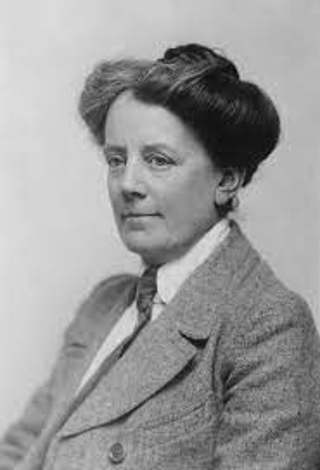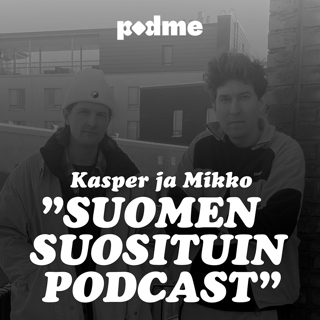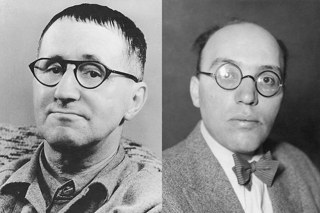
Weill: The Seven Deadly Sins
The collaboration between Kurt Weill and Bertolt Brecht is rightly legendary. The two men could not have been more different from each other, and like the Brahms/Joachim relationship I mentioned in my recent show about the Brahms Double concerto, the friendship between Weill and Brecht was stormy to say the least. The two collaborated on some of the most memorable works of the Weimar era in Germany, such as the Threepenny Opera, which features a pretty famous tune called Mack the Knife. Their final collaboration was on the "sung ballet" The Seven Deadly Sins. This is a piece that was written at a point of remarkably high tension within Weimar Germany. On an artistic level, the 1920s and early 1930s had seen a veritable explosion in the world of culture, with art, dance, theater, and music all featuring artists who were pushing the boundaries with wild experimentation and a kind of ecstatic fervor that produced some of the world's greatest and most memorable cultural achievements. On a parallel track however, the rise of the Nazis cast a pall over all of this. By 1933, both Brecht and Weill(who was Jewish) knew that Germany was not a place that they could stay safely. Weill ended up in Paris and then in the US for the rest of his life, while Brecht bounced around Europe before returning to East Germany after the war, hoping to be a part of the Marxist Utopia that he believed had been founded there. The simmering combination of Weill's mastery of transforming popular forms into a unique kind of classical music along with Brecht's pointed satire and brilliantly inventive libretti resulted in the Seven Deadly Sins, a piece that that brutally satirizes extreme capitalism and the degradation of the human soul that supposedly results from it. This is a nakedly political piece, and I should make it clear that by talking about it, by choosing to feature it on the show, and by regularly performing it, I don't necessarily endorse its views. Brecht was extreme in all ways, as we'll get to today, and the power of this piece in my opinion doesn't come from its politics, but from its remarkable and devastating portrayal of a human soul and the tragedies that can befall it. This is one of my favorite pieces of the whole 20th century, and I'm so happy to share it with you today. Join us!
26 Kesä 1h
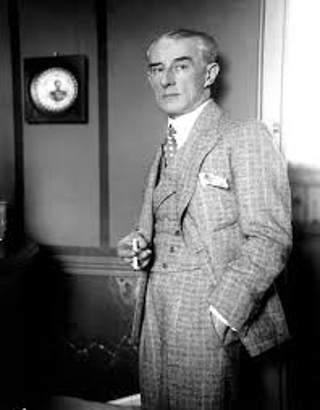
The Ravel Sound with Norbert Müllemann and Stefan Knüpfer
I so enjoyed making this latest episode in my collaboration with G Henle Publishers. I talked with two absolute experts in their fields, Norbert Mülleman and Stefan Knüpfer, all about how to edit Ravel's music, and how to create the Ravel sound on the piano. This episode definitely veers into some very nerdy territory, but Norbert and Stefan are both so brilliant at explaining very high level concepts in a way that anyone can understand, from a person who has never looked at a score to a professional performer. I think everyone will learn a lot from this episode and I don't think you'll ever hear Ravel the same way again after listening! Enjoy!
12 Kesä 45min
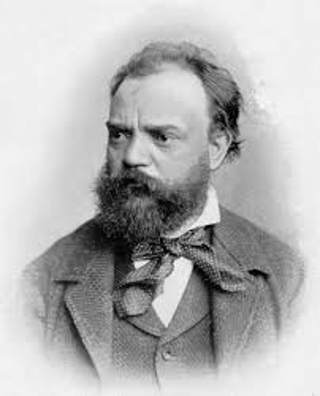
Dvorak Violin Concerto
Admit it: if you're a fan of classical music—or even just a regular concertgoer—you might have glanced at the title of this episode and done a double take. The Dvoř�k Violin Concerto? Not the Cello Concerto? One of the things I love about my job as a conductor—and my side gig as a podcast host—is bringing audiences and listeners like you pieces you may never have heard before, even if they're by extremely well-known composers. Don't get me wrong, I love the blockbusters. But there's a special thrill in introducing someone to something new. Now, some of you might already be big fans of the Dvoř�k Violin Concerto. But in my experience, it's relatively unknown compared to Dvoř�k's more famous works. I've never performed it myself, and I've only heard it live once. It's not part of most touring soloists' repertoire, and it's just one of those pieces that rarely comes up—especially compared to the Cello Concerto, which I think I've conducted at least once every season since becoming a conductor. This concerto came about much like the Brahms Violin Concerto, the Brahms Double Concerto we talked about a couple of weeks ago, and so many other great 19th-century works: inspired by the sound of Joseph Joachim's violin. Joachim was the great violinist of the 19th century and had been a friend and supporter of Dvoř�k for many years. Dvoř�k ended up dedicating the concerto to Joachim, writing: "I dedicate this work to the great Maestro Jos. Joachim, with the deepest respect, Ant. Dvoř�k." Sadly—and for reasons that remain somewhat unclear—Joachim never performed the piece. That may be one of the reasons it's never achieved the popularity it deserves. Today, in this Patreon-sponsored episode, we'll dive into the concerto, exploring its unusual form, the myriad challenges it poses for the violinist, and perhaps some reasons why it's not part of the so-called "Big Five" violin concertos—even though it probably deserves to be.
29 Touko 49min
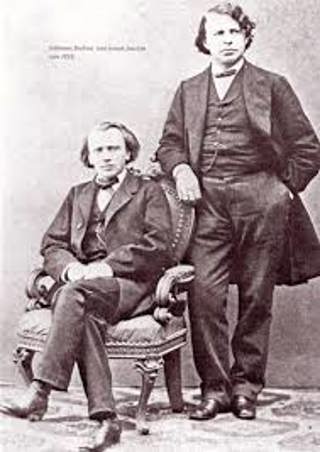
Brahms Double Concerto
It's entirely possible that we would not know the name of Johannes Brahms very well if Brahms hadn't met Joseph Joachim as a very young man. Joachim, who was one of the greatest violinists of all time, had already established himself as touring soloist and recitalist, and he happened to know the musical power couple of Robert and Clara Schumann quite well. Joachim encouraged Brahms to go to Dusseldorf to meet the Schumann's, and the rest is history. I've talked about the Brahms-Schumann relationship dozens of times on the show before, but to keep it very brief, Robert Schumann's rhapsodic article Neue Bahnen(new paths) launched Brahms' career, and until Schumann's deterioration from mental illness he acted as a valued friend and mentor for Brahms. Clara Schumann, as a performer, was a powerful advocate for Brahms' music as well as a devoted and loving friend throughout the rest of their lives. Almost constantly present in this relationship was the sound of Joseph Joachim's violin. Brahms did not have a huge circle of friends, but for the often difficult to get along with composer, Joachim was a musical and spiritual companion. Brahms' legendary violin concerto was written for him, and the two collaborated closely for the entire course of their musical lives, except for one significant break. Brahms and Joachim were estranged for 7 years, until Brahms reached out with a remarkable conciliatory gesture: a concerto for Violin and Cello and that would be dedicated to Joachim. Brahms and Joachim(as well as Brahms and Clara Schumann) had often resolved disputes through music, and this was no exception. Clara Schumann gleefully wrote in her diary after Joachim had read through the piece with cellist Robert Hausmann: "This concerto is a work of reconciliation - Joachim and Brahms have spoken to each other again for the first time in years." One would expect that a work like this would be beloved, but the Double Concerto has had a checkered history, which we'll also get into later. Clara herself wrote that it lacked "the warmth and freshness which are so often found to be in his works," It would turn out to be Brahms' last work for orchestra, and one of the few in his later style, which makes It fascinating to look at from a compositional perspective. Partly because of the cool reception it got in its first few performances, and the practical challenges of finding two spectacular soloists who can meet its challenges, the piece is not performed all that often, though I have always adored this piece and am very grateful to Avi who sponsored this week's show from my fundraiser last year before the US election. So let's dive into this gorgeous concerto, discussing the reasons for Joachim and Brahms' break, their reconciliation, the reception this piece got, and then of course, the music itself! Join us!
15 Touko 58min
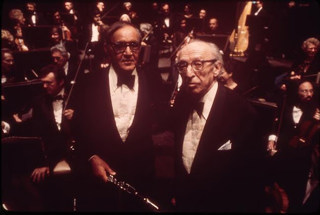
Copland Clarinet Concerto
The commission for a new Clarinet Concerto from the great American composer Aaron Copland came from a rather unlikely source: Benny Goodman, the man known as the King of Swing. Goodman was one of the most famous and important jazz musicians of all time, but in the late 1940s, swing music was on the decline, and bebop had taken over. Goodman experimented with bebop for a time but never fully took to it in the way that he had so mastered swing. Goodman then turned towards the classical repertoire, commissioning music from many of the great composers of the time, such as Bela Bartok, Darius Milhaud, Paul Hindemith, Francis Poulenc, and of course, Aaron Copland. Copland eagerly agreed to the commission, and spent the next year carefully crafting the concerto, which is full of influences from Jazz as well as from Latin American music, perhaps inspired by the four months Copland spent in Latin America while writing the piece. What resulted from all this was a short and compact piece in one continuous movement split into two parts. With an orchestra of only strings, piano, harp, and solo clarinet, Copland created one of the great solo masterpieces of the 20th century. It practically distills everything that makes Copland so great into just 18 minutes of music. Today on the show we'll talk about the difficulty of the piece, something that prevented Benny Goodman from performing the concerto for nearly 2 years, as well as the immense difficulty of the second movement for the orchestra. We'll also talk about all of those quintessentially Copland traits that make his music so wonderful to listen to, and the path this concerto takes from beautiful openness to jazzy fire. Join Us! Recording: Martin Frost with the Norwegian Chamber Orchestra Pedro Henrique Alliprandini dissertation: https://getd.libs.uga.edu/pdfs/alliprandini_pedro_h_201812_dma.pdf
1 Touko 48min
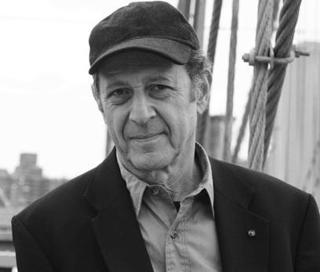
Steve Reich: Different Trains
Steve Reich, the great American contemporary composer, provided this program note about his work Different Trains: "The idea for the piece came from my childhood. When I was one year old my parents separated. My singer, song-writer mother moved to Los Angeles and my attorney father stayed in New York. Since they arranged divided custody, I travelled back and forth by train frequently between New York and Los Angeles from 1939 to 1942 accompanied by my governess. While the trips were exciting and romantic at the time I now look back and think that, if I had been in Europe during this period, as a Jew I would have had to ride very different trains. With this in mind I wanted to make a piece that would accurately reflect the whole situation." Reich went about this piece in a completely innovative way: he recorded voices and then created the musical material for the piece out of the voices themselves, something that had never been done before. Therefore, the text and music material were integrated in a groundbreaking way, and the results are at times unbearably moving. This is a piece that has captured listeners attention in a way that is relatively rare for contemporary music, and it is a piece of immense power and depth. I have always been fascinated by this piece and have wanted to perform an orchestral version of it, but I never have been able to cover it on the show. That is, until AJ contributed enough to my fundraiser last year before the election to sponsor a piece, and he chose Reich's Different Trains. Today we'll talk a bit about Steve Reich generally for those of you unfamiliar with him, and then we'll tackle this remarkable and unique piece in all of its creativity and profound communication. Join us!
17 Huhti 52min
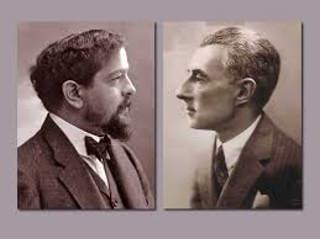
Best of Frenemies: Debussy and Ravel
Debussy and Ravel are often described as the prototypical musical impressionists. It is often said that the two composers are the closest equivalents to the artistic world of Monet, Renoir, Pisarro, Degas, and others. But both Ravel and Debussy (like Monet for that matter), vehemently rejected the term Impressionism, and they both felt that they were striking out on their own individual paths in their msuic. That didn't stop the public and critics from constantly comparing the music of these two shining lights of French music, despite the fact that Ravel and Debussy are actually quite different. Comparing Ravel and Debussy is a bit like comparing Haydn and Mozart. At first glance, there are many similarities, but if you look and listen more closely, Ravel and Debussy(like Mozart and Haydn) had totally different approaches, goals, and styles. All of the constant comparisons and attempts at making the composers compete with each other had a real impact on Debussy and Ravel. Initially they were friends and mutual admirers of each others work, but they slowly drifted apart over time until they stopped speaking to each other altogether. We'll talk about this complicated personal relationship, as well as looking at these differences in their music, not from a critical standpoint, but from the perspective of bringing out what is so wonderfully unique about their music. We'll also talk about Ravel's arrangements of two Debussy's greatest orchestral works: his two piano arrangement of Debussy's Nocturnes, and his piano 4 hands arrangement of the legendary Prelude to the Afternoon of a Faun. Join us on another collaboration with G Henle Publishers! Recordings: Nocturnes Claudio Abbado with London Symphony Anne Shasby, Richard McMahon, Piano Prelude to the Afternoon of a Faun Ravel arrangement: Jean-Pierre Armengaud and Olivier Chauzu Debussy Arrangement: Charles Badami and Anthony Olson
3 Huhti 52min
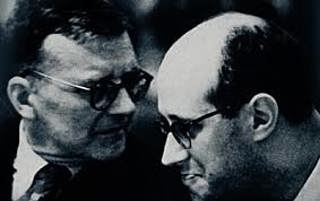
Shostakovich Cello Concerto No. 1
It's hard to overstate the depth of the connection between Dmitri Shostakovich and the legendary cellist Mstistlav Rostropovich. Shostakovich and Rostropovich were extremely close friends, and Shostakovich wrote and dedicated several works to him, including the piece we're going to talk about today, the first Cello Concerto. Rostropovich had been desperate to get Shostakovich to write a concerto for him, but Shostakovich's wife had one simple piece of advice: if you want Shostakovich to write something for you, don't talk to him about it or even mention it. So Rostropovich waited and waited, until July of 1959, when he was asked by Shostakovich to come to Leningrad to try out a new Cello Concerto. Shostakovich played through the piece for Rostropovich, turned to him, and asked him if he liked it. Rostropovich apparently told Shostakovich that he "had been shaken to the core." Shostakovich, in his famously modest way, then shakily asked Rostropovich if he could dedicate the concerto to him. Rostropovich immediately agreed, and then rushed off to learn the concerto as quickly as possible. He learned the entire concerto in 3 days, then returned to Shostakovich and played it for him by heart. The concerto is practically stamped with Rostropovich's name, which is why I'll be using a recording of a live performance of Rostropovich during the show today, though I must say I also recommend a pretty great modern recording by a certain cellist who is also my sister, Alisa Weilerstein. This concerto has always been one of my favorites; it is compact, powerful, punchy, beautiful, intense, concentrated, and tremendously exciting. For me, it is one of Shostakovich's most Beethovenian works, in its lean power and its obsession with a single motive. Today on this fundraiser sponsored show, we'll talk through this fantastic concerto, and explore just what makes its momentum so inevitable and so thrilling from start to finish. Join us!
20 Maalis 50min
